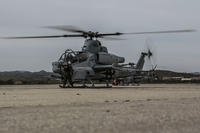The U.S. has no immediate plans for military cooperation with Russia in a campaign against the Islamic State in Syria after an ISIS affiliate claimed responsibility for a Russian airliner crash in the Sinai, the Pentagon said Tuesday.
"We have obviously seen what’s happened with the crash" of the Airbus, Peter Cook, the Pentagon’s press secretary, said during a press conference. "But at this point we don’t see an opportunity to coordinate and collaborate with the Russians in the ISIL fight," he added, referring to another term for ISIS.
Cook didn’t completely rule out the possibility of working with the Russians.
"There is an opportunity for Russia here to play a constructive role" in Syria, he said, but the U.S. has for now shut off that course of action "largely because Russia seems more focused on supporting" the regime of Syrian President Bashar al-Assad.
A Metrojet Airbus A321 jet with 217 passengers and seven crew members on board crashed in Egypt’s Sinai Peninsula on Oct. 31. There were no survivors from Flight 9268 from the resort city of Sharm el-Sheikh to St. Petersburg.
It was the worst airline disaster in the history of Russian aviation, surpassing the 200 killed in a 1985 crash in Uzbekistan. Al Wilayat Sinai, an affiliate of the Islamic State of Iraq and Syria, has claimed responsibility for the destruction of the Airbus A321.
Russian officials had rejected the theory that a bomb planted aboard may have brought down the plane but Russian Prime Minister Dmitry Medvedev reversed course Monday. "The possibility of a terrorist act, of course, remains among the reasons of what had happened" to the Metrojet, Medvedev told the Rossiyskaya Gazeta newspaper.
For now, the U.S. is relying on a buildup of airpower at the Incirlik airbase in Turkey to increase the number of airstrikes against ISIS in Syria, Cook said.
He said that six F-15C fighters had arrived at Incirlik last Friday and six F15Es would also soon be sent to the base to join 12 A-10 Thunderbolts that have already been operating out of the facility to conduct strikes in Syria.
Turkish President Recep Tayyip Erdogan said Tuesday that Turkey would be open to allowing U.S. and coalition aircraft to use other airbases in the country.
"If it is necessary, they can use also other airbases against Daesh." Erdogan said, using another term for ISIS. "We are determined to fight against the group."
Erdogan also raised anew the possibility of creating a safe zone for refugees along the Turkish-Syrian border, an idea that the U.S. has thus far rejected, Reuters reported. "Some friendly countries have begun supporting the safe-zone issue," Erdogan said.
However, Cook said the U.S. was not yet among those "friendly countries."
--Richard Sisk can be reached at Richard.Sisk@military.com.





























